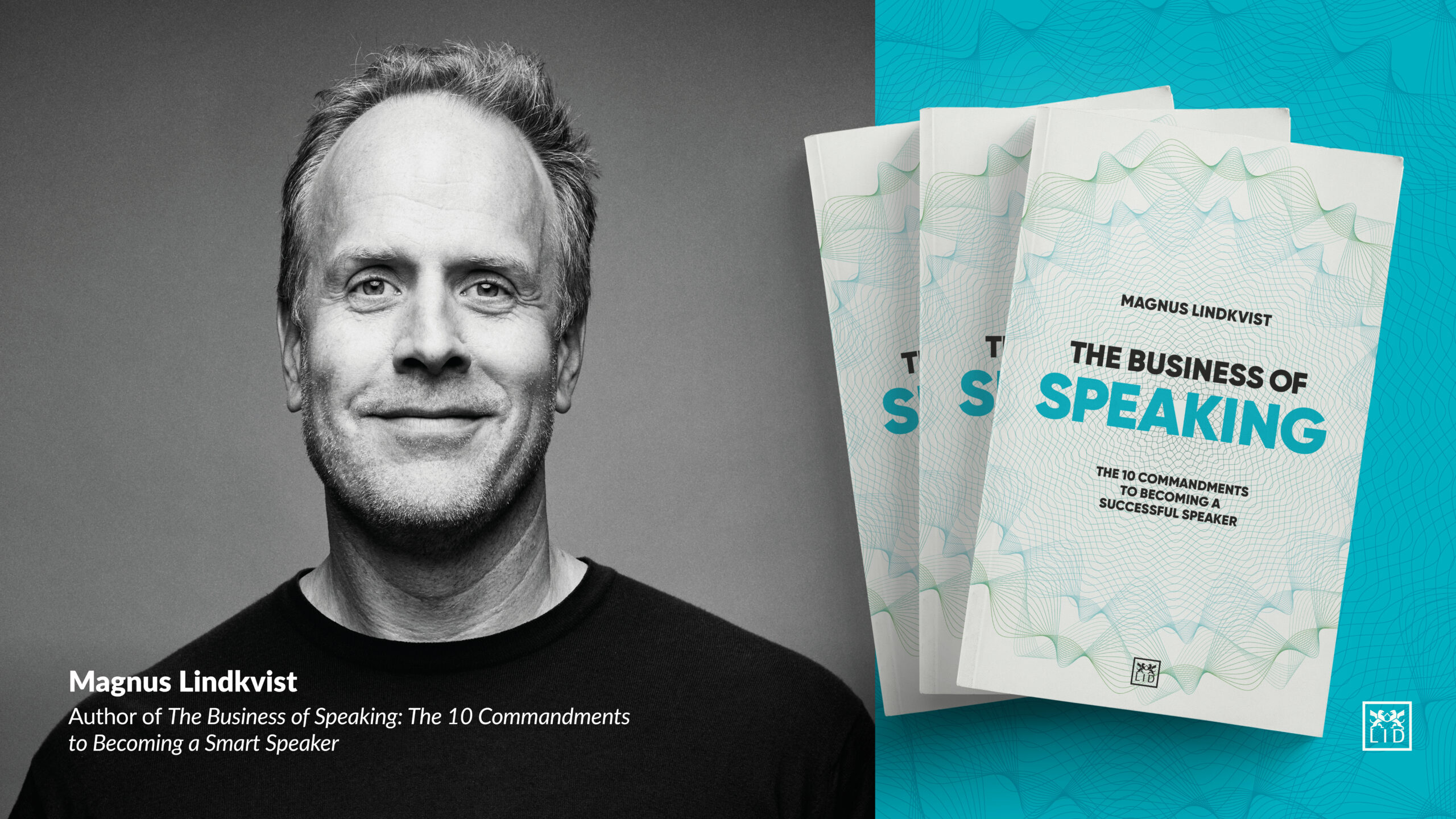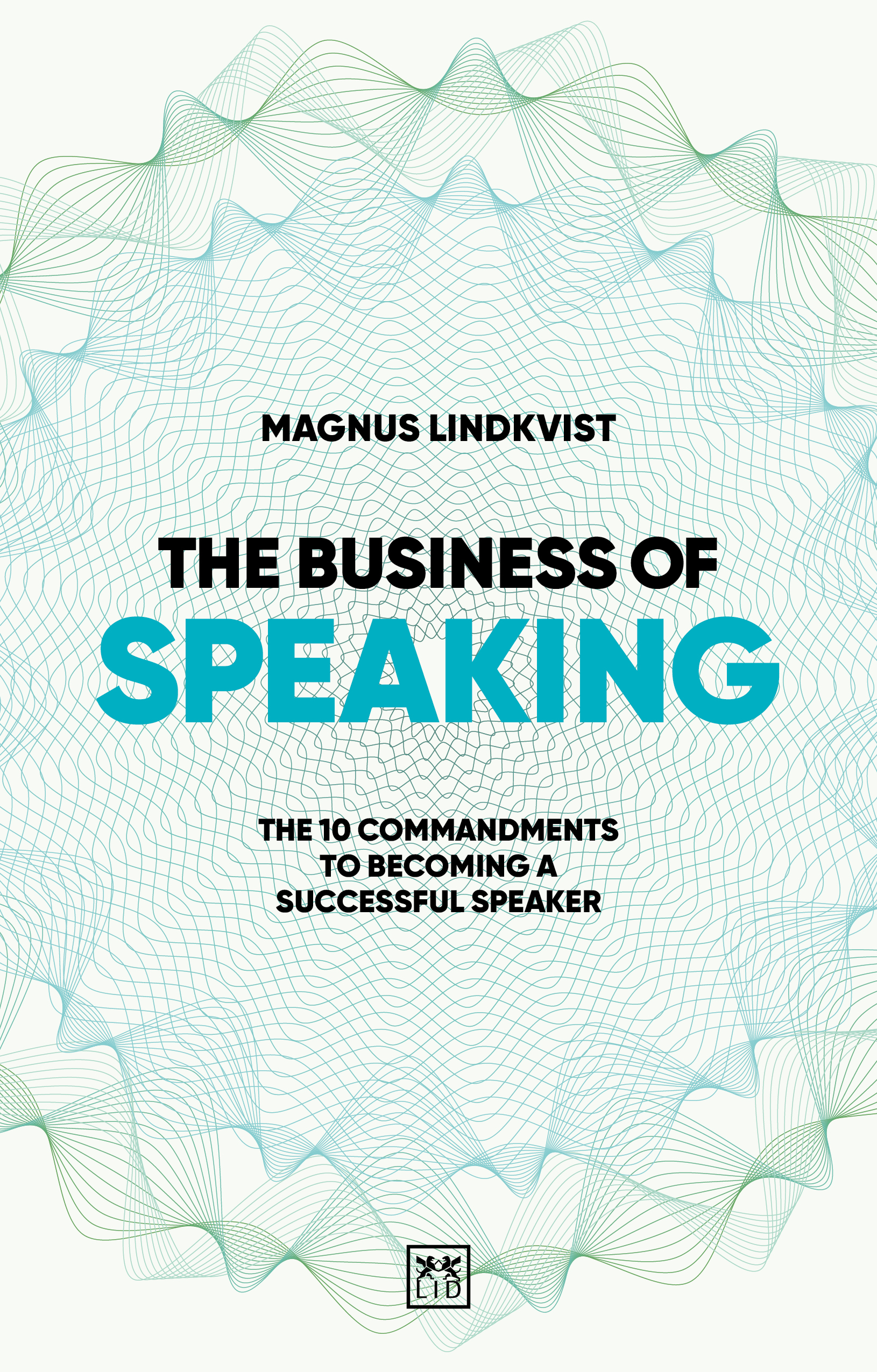|
Thou Shalt Prioritise Exposure Over Fees with Magnus Lindkvist
Thou Shalt Prioritise Exposure Over Fees

Book Excerpt from The Business of Speaking by Magnus Lindkvist
Richard Branson is genuinely nice in real life, a trait not all celebrities share. Backstage at a central London conference venue, I found him to be open, warm and friendly. He readily posed for photographs and cracked jokes with the staff.
For me, the nervousness was palpable. After all, I was about to open for him with a 5-minute monologue, a prestigious yet daunting task. Sir Richard’s jokes only mildly eased my tension.
Then, a knock on the door signalled it was showtime. And that’s when it hit me: I was utterly unprepared. This realization brought to mind U2’s Joshua Tree tour in the late 1980s. Their album was selling so well that their management booked 50,000-seat stadiums, not 10,000-seat areas. But they did not have enough hit songs to entertain a stadium for two hours, so Bono Vox, their lead singer, would have to sell every song by doing physical stunts like running around inside the stadium or climbing lighting rigs. I was about to face a vast audience with scant recognizable material, and I knew I had to make each moment count, possibly with my own version of ‘acrobatics.’
I grabbed a half-empty (or was it half-full?) bottle of Diet Coke on my way to the stage, thinking it could serve as some kind of prop.
I untucked my (stylistically ill-advised) Matador-style red shirt, loosened my tie and opened the collar.
I sought some punk-business hybrid look. I had to do something to stand out and make a dent. The audience expected one of the world’s greatest entrepreneurs, not a random Swedish futurologist.
The stage manager lightly tapped me on the shoulder.
It was time.
The speech was a blur.
Thousands of people were waiting for Branson. They looked at me with quiet reserve or outright boredom but, in some rare instances, a slight look of amusement.
Something I did registered with them.
All I remember is that I gave the half-empty Coke bottle to a gentleman in the front row as a giveaway. “Skål! (Cheers),” he replied as if raising a toast.
My five minutes were up.
Exiting the stage, I considered it another addition to my list of unsuccessful talks – or so I thought.
ESCAPE VELOCITY
In physics, escape velocity is the speed something needs to reach to break free from a planet’s or moon’s gravity and not fall back. In the speaker business, it is the momentum needed to break away from the pack of anonymity and establish yourself as a trusted supplier of keynote talks. The fuel needed for escape velocity is gained by saying yes – to everything. Just get out there. Learn before you earn. Don’t second-guess, plan or strategize. Nobody will pay you much before they know you’re a safe bet. And you will not be a safe bet before you have been baptized by a hundred bad talks. I gave free talks to schools, universities, advertising agencies, theatre groups, museums and other monetary-challenged institutions. It was a good deal for both. I got to practise. They got free, mediocre infotainment.
Besides learning, all these yeses aim to expose yourself to the enigmatic powers of serendipity. After a few years, I got a last-minute inquiry from a temp agency to come and speak at their leadership meeting. They had planned for one of Sweden’s most sought-after speakers on the topics of trends, future thinking and leadership, but he had been caught with his pants down – literally – procuring sexual services, which is illegal in Sweden. Somebody among the temp agency’s managers had seen me speak at a museum and liked what she heard. One thing led to another, and the meeting went so well that the company decided to host a Nordic roadshow on “Jobs of the Future,” with me as the star billing. A free talk given in a museum, combined with the poor judgment of the intended speaker, led to a 30-date paid tour in Sweden, Finland, Denmark and Norway. Whenever you read about how entrepreneurs and inventors of pop stars succeeded, it always comes down to the power of serendipity – random events positively conspiring for you.
THE SIRENS IN THE SPOTLIGHT
The spotlight in show business – and yes, public speaking is show business – is deceptive. You can easily get blinded by it and believe it is all about you and what a superstar you are. To steer clear of that delusion, let’s reexamine the journey taken above and analyse it using two of the basic tenets of business outlined in the Introduction:
- Being good at something difficult is the best placeto start if you want to make money.
It’s easy to believe that giving a talk is the hard part. It’s not. The hardest part is giving a talk when you don’t feel like it, like when you face a room of thousands eager to hear Sir Richard Branson, and your only job is interrupting the proceedings. The same goes for writers, chefs and professional athletes, to name a few. It is not doing the job in and of itself that will enable you to make a living – it is your ability to do it when all other conditions are dire. This book is about the business – not the joy – of speaking.
- Doing business is about understanding thateveryone wants something … to happen, get somewhere, come true and so on.
The manager at the temp agency wanted to solve a problem: who could quickly replace the booked speaker so that nobody would complain? In this case, it is not about being a particularly good speaker – you only have to be good enough – but about being someone who can say yes quickly and help them solve the problem. Compare it to your toilet leaking on a Friday night. You don’t care if the plumber who can help you is nice or passionate. You don’t care if they are particularly good at plumbing as long as they solve the problem and prevent the toilet from leaking. Understanding what the other wants to happen is key to doing business.
Your hundred yeses build awareness of you as a speaker and help you understand how and where your services fit in. You start with a distorted sense of omnipotence – which is why you will fail so often – but slowly learn what niche best suits your abilities.
ABOUT THE AUTHOR
Suggested Reading
 A wide range of people –from consultants, coaches, executives to academics, authors, journalists and scientists –are also speakers today. Indeed, anyone with expertise, knowledge or motivation can and should become a public speaker. But to become a successful speaker requires a certain savviness and understanding of what really oils the engine of the speaking world. Written by one of the world’s most in-demand business speakers, this book presents 10 essential rules to guide anyone who wants to launch themselves as a speaker.
A wide range of people –from consultants, coaches, executives to academics, authors, journalists and scientists –are also speakers today. Indeed, anyone with expertise, knowledge or motivation can and should become a public speaker. But to become a successful speaker requires a certain savviness and understanding of what really oils the engine of the speaking world. Written by one of the world’s most in-demand business speakers, this book presents 10 essential rules to guide anyone who wants to launch themselves as a speaker.

 Magnus Lindkvist is a visionary futurologist and trendspotter, renowned for his subversively humorous and insightful keynotes. With a master’s in business and economics from the Stockholm School of Economics and a film production degree from UCLA, Magnus combines academic rigour with Hollywood storytelling. Over nearly three decades, he has enthralled audiences globally, sharing profound insights into creativity, innovation and future trends.
Magnus Lindkvist is a visionary futurologist and trendspotter, renowned for his subversively humorous and insightful keynotes. With a master’s in business and economics from the Stockholm School of Economics and a film production degree from UCLA, Magnus combines academic rigour with Hollywood storytelling. Over nearly three decades, he has enthralled audiences globally, sharing profound insights into creativity, innovation and future trends.